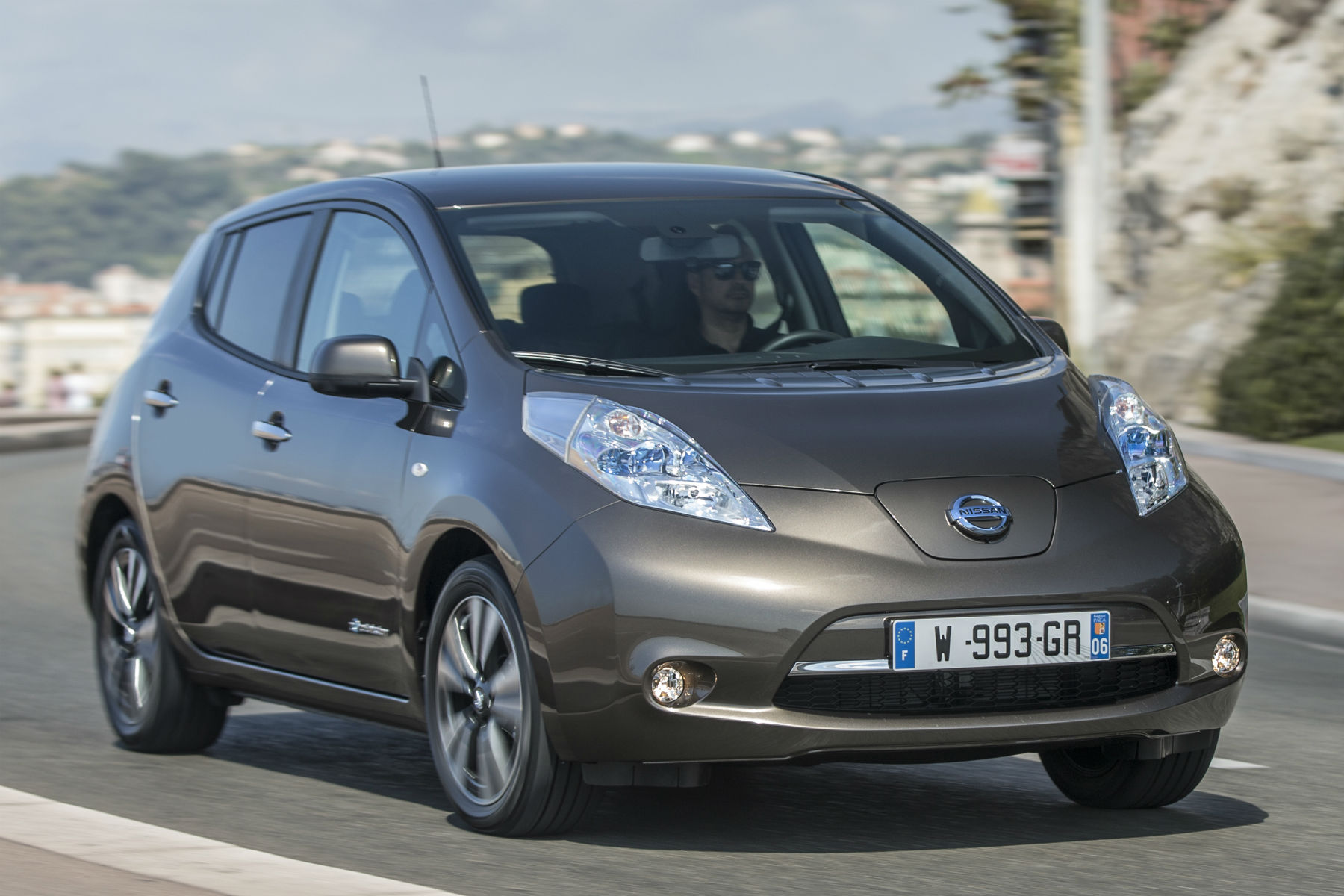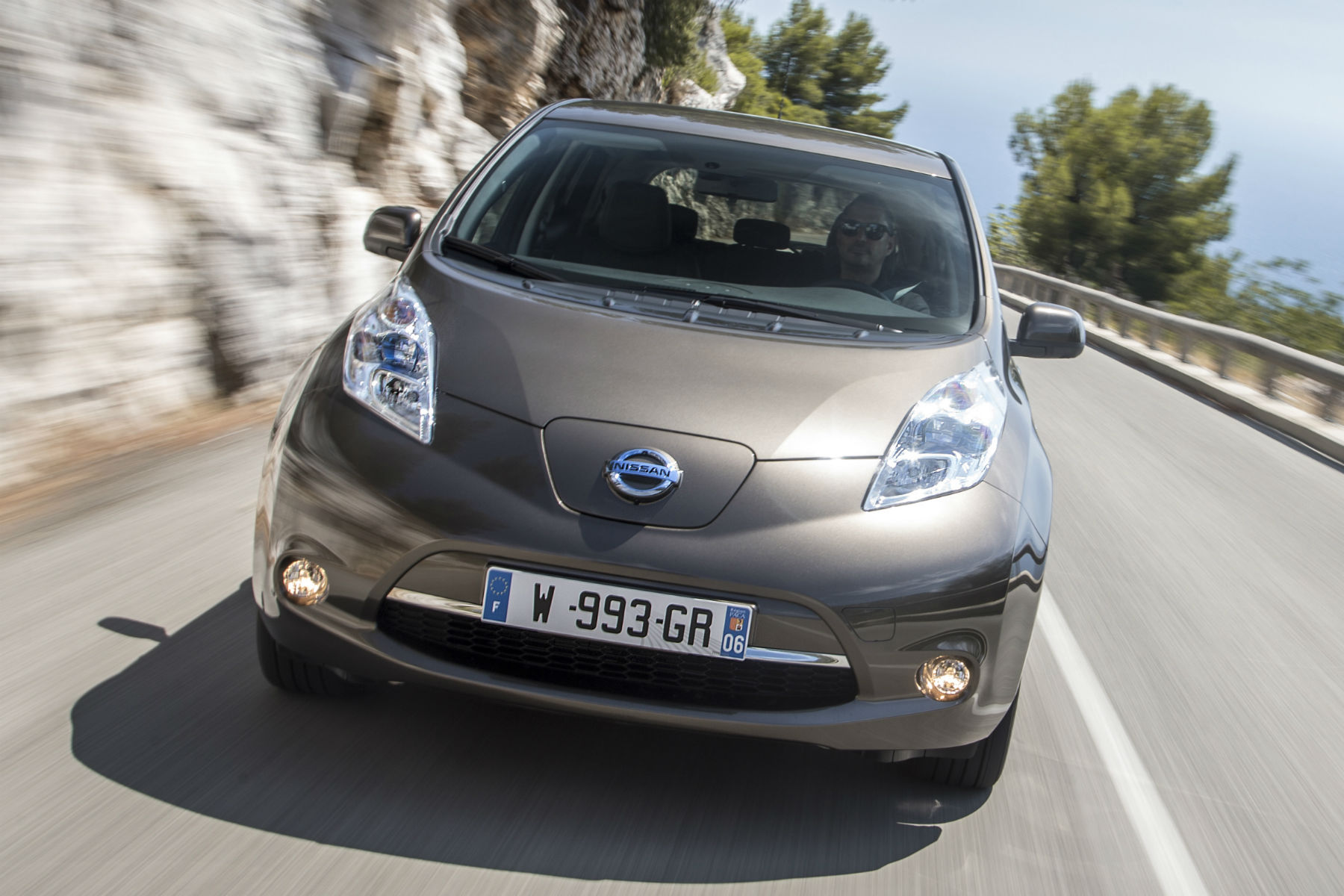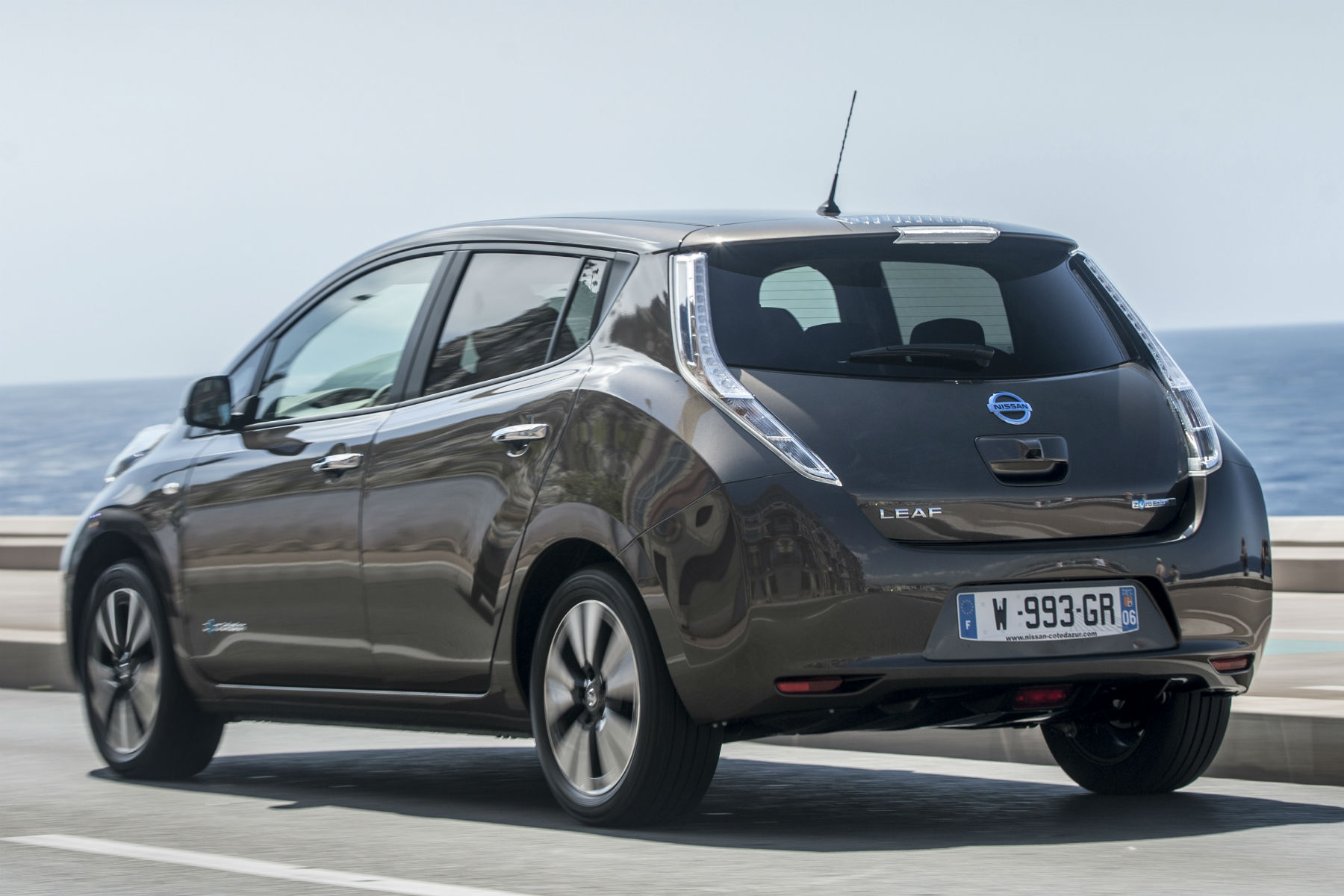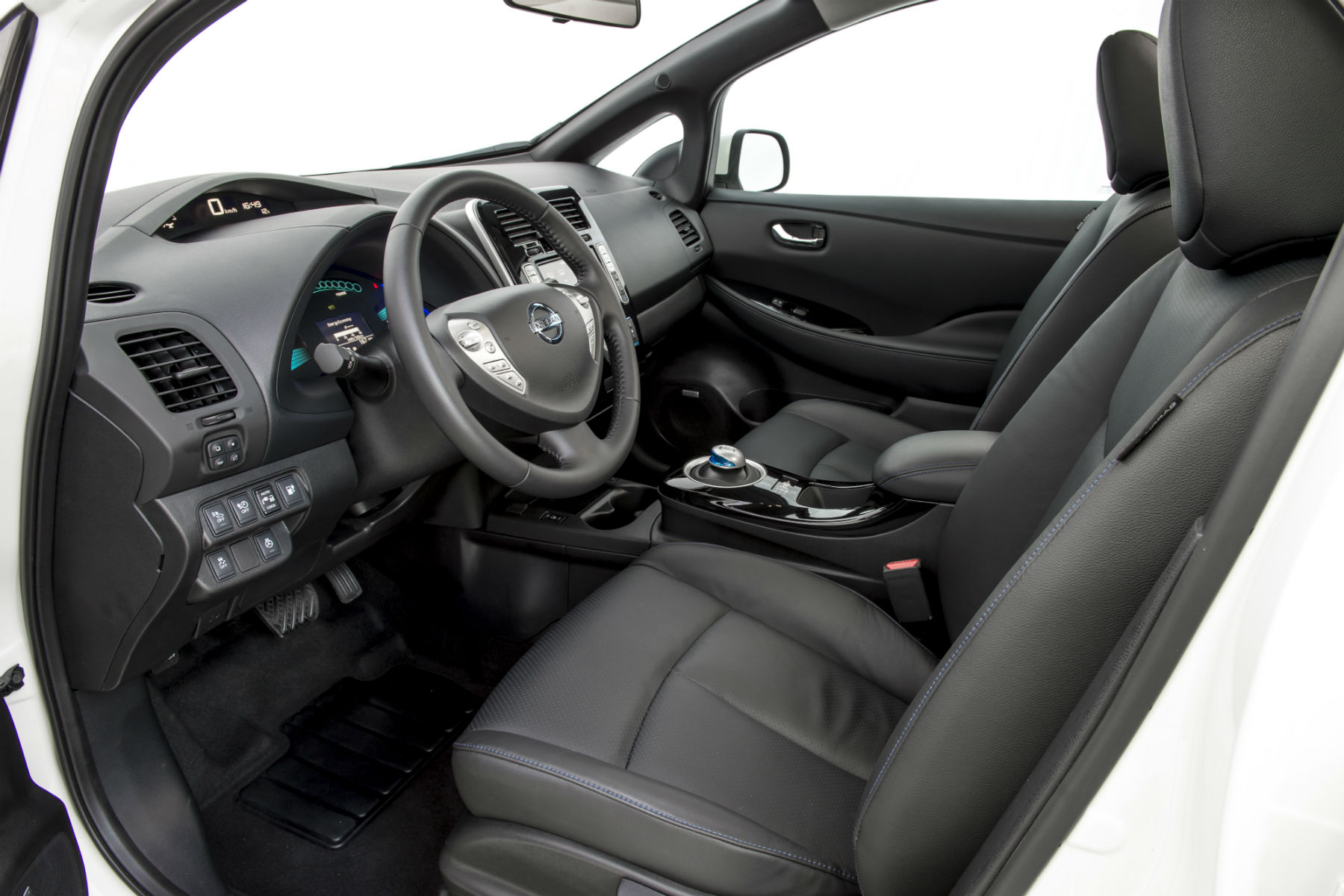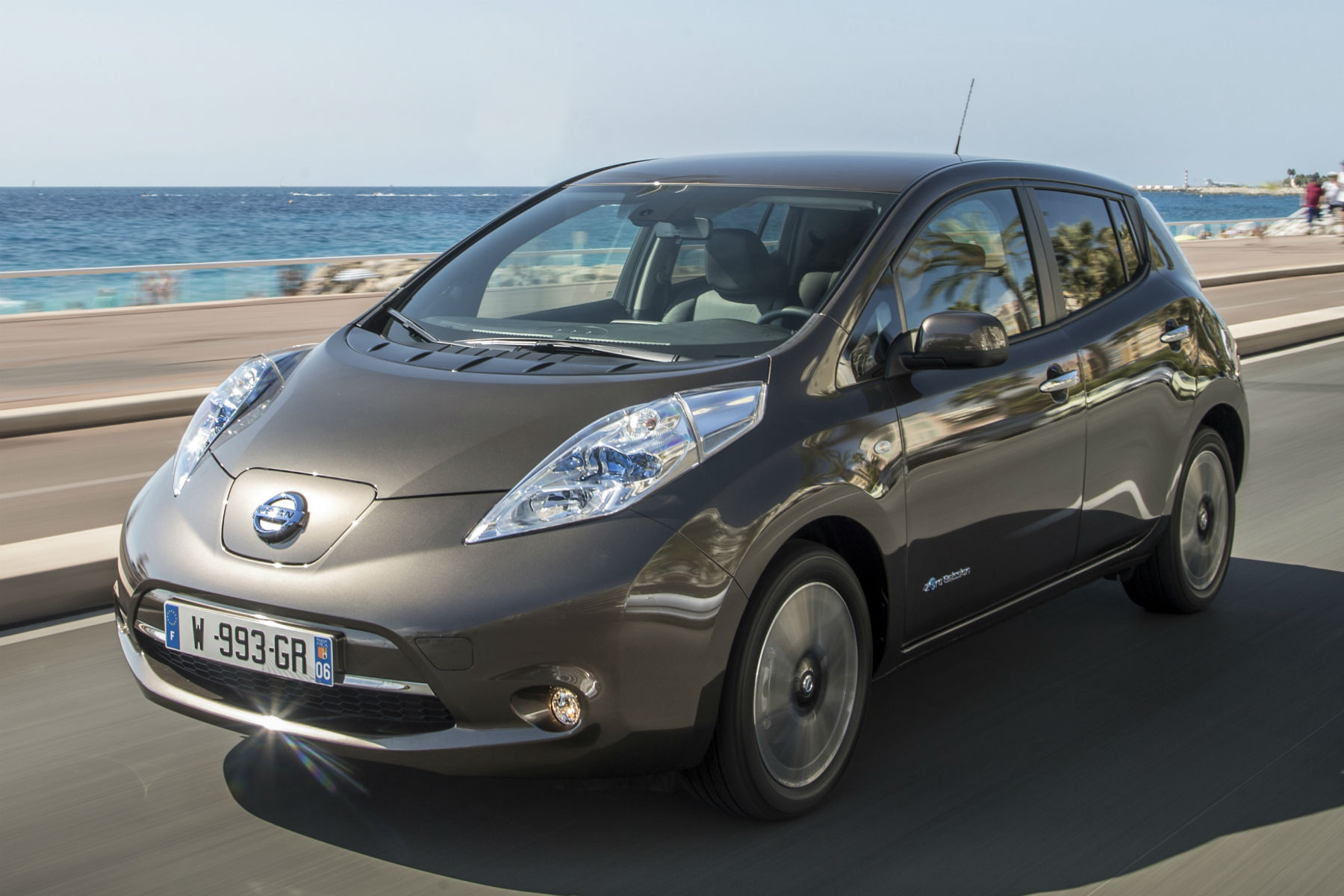Are you quick to dismiss electric cars due to their limited range? The Nissan Leaf can now go further on one charge and could be good enough to catapult electric cars into the mainstream.
Definition of range anxiety [noun] informal: “Worry on the part of a person driving an electric car that the battery will run out of power before the destination or a suitable charging point is reached: range anxiety is often cited as the most important reason why many are reluctant to buy electric cars.”
The Oxford English Dictionary has unintentionally hit the nail on the head. Ask anyone why they wouldn’t buy an electric car and they’ll make mutterings about their limited range, limited charging points, and the worry about being left stranded.
So Nissan’s bods have been working very hard to work out how they can extract a longer range from its electric Leaf. The result is a 30kWh battery and a claimed range of 155 miles. It’s a simple upgrade for 2016: exactly £0 has been spent making the Leaf look more attractive (unless you count a snazzy new bronze colour and a new aerial), it’s all about making the Leaf go further on a single charge. Oh, and the addition of the latest NissanConnect EV infotainment system.
2015 Nissan Leaf 30kWh review: On the road
If you’ve never driven an electric car before, the Nissan Leaf is likely to be a very pleasant surprise. Particularly if most of your driving is done in urban areas. It’s such a relaxing experience – with none of the noise you associate with the typical combustion engine. A small amount of road noise does transfer into the cabin, but that’s unavoidable and largely well disguised.
The heavy batteries make for a slightly harsh ride (the 30kWh Leaf is 21kg heavier than the standard 24kWh version) – but considerably better than the Leaf of a few years ago. And, positioned below the floor, they create a low centre of gravity which translates into controlled (if not particularly exciting) handling.
We drove the revised Nissan Leaf on the Col de Turini – one of Europe’s best roads, with 34 hairpin bends and steep slopes. There’s no denying that the Leaf is slightly out of its depth if you try to make progress, but its instant torque delivery and near-silent operation makes for a relaxing experience if you’re not in a hurry.
It’s equally relaxing on the motorway, but the motor does start to feel a bit strained if you attempt to zip along like you would in a typical Focus-sized turbodiesel. Bimble at 60mph, though, and there’s nothing more than a bit of wind noise and the declining range to trouble you.
2015 Nissan Leaf 30kWh review: On the inside
On first impressions, you may be surprised by how spacious the Leaf is. It’s almost like a people carrier in its headroom, and rear legroom is equally impressive. The light, airy feel makes for a pleasant environment as you bimble around in silence.
But don’t expect it to be premium. Despite a price tag starting at £24,490 for the 30kWh version, Nissan has unashamedly spent the money on the Leaf’s technology – not in chasing premium aspirations. There are a few more buttons on the dash than we’d like, and some are weirdly positioned. The foot-operated handbrake feels archaic and takes some getting used to (but you will) and the seats are little more than adequate.
One thing that does grate is the inability to adjust the steering wheel for reach. This makes it difficult to get a comfortable driving position – you end up sitting both slightly higher and slightly closer to the pedals than you’d really like. It’s something you’ll probably get used to, but do take a test drive before committing.
The infotainment system – now with features such as DAB radio as standard, is easy to use. Nissan claims its been influenced by a smart phone – pinch the touchscreen to zoom in the sat-nav display, for example. Sure, it’s nothing groundbreaking, but it’s intuitive and works well.
2015 Nissan Leaf 30kWh review: Running costs
In terms of cash saved at the petrol pump, the Leaf offers 100% savings. But many will be concerned about how much the Leaf will cost in other ways – how reliable will the battery be, for example, and how much does it cost to charge up?
Most owners will charge their Leaf overnight at home. This takes about four hours to charge up to 100% – and should only cost a couple of quid, depending on your electricity provider.
With a realistic range of, say, 120 miles, that will be plenty for driving to work and back for most of us. But what if you’re wanting to travel further afield?
There are more than 9,000 public electric car charging points across the UK – many of which are free to use, and all of which will cost pittance compared to filling up with a tank of unleaded. Around 500 of these are fast chargers, which will charge your Leaf up to 80% in just 30 minutes. Stopping for a half an hour coffee break on a longer journey seems a small price to pay for not having to have your wallet drained at a petrol station.
However, it’s a fact that batteries lose life over time. Anyone who’s had a shiny new iPhone will testify for its impressive battery life, but a year or two into its life and it holds it charge considerably less. Many buyers will be worried that the Leaf’s range will diminish rapidly a few years’ into its life, and could result in a costly battery change. But Nissan provides a eight-year, 100,000 mile warranty for its battery. That doesn’t mean that it’ll be as good as new after eight years – Nissan says it’ll still have 75% of its capacity after that time.
2015 Nissan Leaf 30kWh review: Verdict
A Nissan marketing expert told us that they’d seen a soaring rise in the amount of interest in the Leaf in recent weeks – from Google searches to test drive requests. There’s been a building resentment towards diesel vehicles over the last year or two and, Nissan would hope, Dieselgate might be the tipping point that results in electric vehicles finally being taken seriously.
As an introduction to electric cars, the Nissan Leaf is an excellent choice. It’s the UK’s favourite electric vehicle and the new 30kWh version fully deserves to strengthen its sales. The increased range will make it more appealing to more people. In real life conditions, it’ll be closer to 120 miles. This doesn’t sound a lot compared to a petrol or diesel-powered car, but when was the last time you drove for more than 120 miles without stopping? Sure, some of us will, but most of us do much shorter journeys.
It’s refreshing that Nissan is continuing to develop the Leaf’s tech with little chintz. There’s no superficial facelift – it’s not really needed, in our eyes – just increased range. Which is exactly what prospective customers want.
Is the Nissan Leaf likely to get a longer range in the future? Not in the foreseeable, say the experts from Nissan. They’ve packed as much capacity into the battery as possible, and the Leaf just isn’t able to accommodate a bigger unit. But who knows what another few years of innovation will bring?
2015 Nissan Leaf 30kWh review: Specifications
Price: £24,490 (including £5,000 Plug-in Car Grant)
Power: 109hp
Torque: 187lb ft
0-62mph: 11.5 seconds
Top speed: 87mph
Fuel economy: n/a
CO2 emissions: 0g/km
